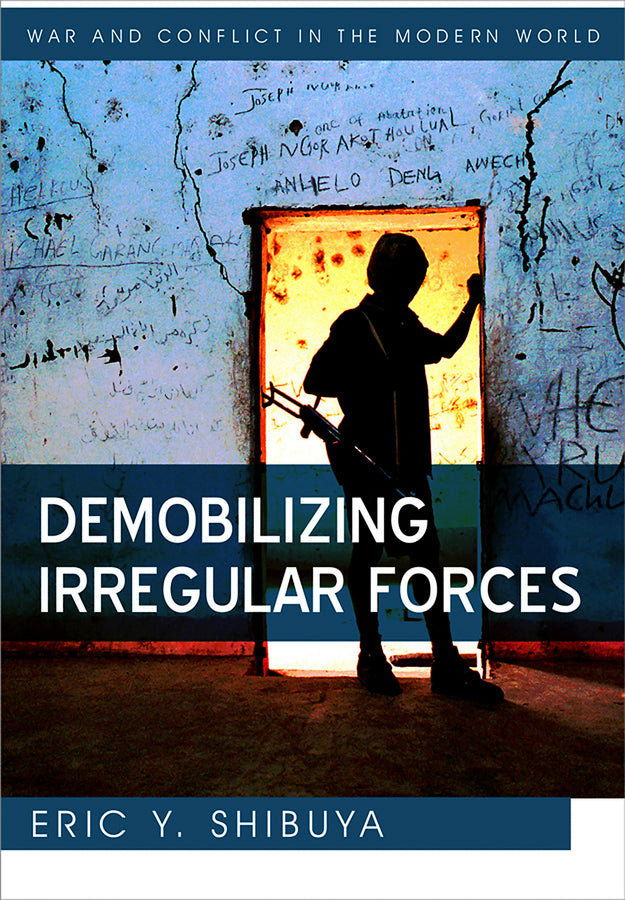Description
Discover the vital insights of 'Demobilizing Irregular Forces', a comprehensive resource on Disarmament, Demobilization, and Reintegration (DDR) strategies essential for post-conflict recovery. This detailed exploration, published by John Wiley & Sons, provides an in-depth understanding of the complexities surrounding the aftermath of armed conflicts, including case studies from Afghanistan, Sierra Leone, and East Timor. The book addresses how former combatants often resist returning to civilian life, fueled by their understanding of warfare as a profitable endeavor. Eric Shibuya sheds light on the DDR process, emphasizing the need for tailored approaches that respect the social and psychological contexts of communities involved. This book is perfect for students and professionals in politics, security, and conflict studies, facilitating a nuanced understanding of peacebuilding dynamics today. With 208 pages of critical analysis and practical insights, 'Demobilizing Irregular Forces' is your essential guide to navigating the challenges of re-integrating irregular forces into society. Condition: BRAND NEW. ISBN: 9780745648866. Year: 2012. Note: Shipping for this item is free. Please allow up to 6 weeks for delivery. Once your order is placed, it cannot be cancelled.
Note: Shipping for this item is free. Please allow up to 6 weeks for delivery. Once your order is placed, it cannot be cancelled.
Condition: BRAND NEW
ISBN: 9780745648866
Year: 2012
Publisher: John Wiley & Sons (UK)
Pages: 208
Description:
From Afghanistan and Sierra Leone to East Timor, the aftermath of any armed conflict presents a complex set of challenges. Whatever political agreements may have been reached, conflicts are often at risk of reigniting, and the fates of their former participants remain uncertain. Armed groups may not be easily dissuaded from pursuing belligerent activities which they see as both profitable and understandable behaviour. In the face of these difficulties, the process of disarmament, demobilization and reintegration (DDR) attempts to convince combatants to relinquish their weapons and return to civilian life. It is a crucial first step towards lasting peace.Demobilizing Militias is the first comprehensive introduction to DDR in the contemporary world. Examining regions as varied as Africa, Asia and Central America, it guides readers through the different stages of the DDR process as well as assessing competing perspectives surrounding its implementation. Attentive to the problems faced by practitioners, Eric Shibuya argues against a 'one size fits all' approach, emphasizing the importance of social and psychological contexts in fostering the trust that is necessary for DDR to succeed. Accessible and incisive, it will be an ideal resource for students of politics, security and conflict studies, as well as anyone interested in the dynamics of peacebuilding today.
Note: Shipping for this item is free. Please allow up to 6 weeks for delivery. Once your order is placed, it cannot be cancelled.
Condition: BRAND NEW
ISBN: 9780745648866
Year: 2012
Publisher: John Wiley & Sons (UK)
Pages: 208
Description:
From Afghanistan and Sierra Leone to East Timor, the aftermath of any armed conflict presents a complex set of challenges. Whatever political agreements may have been reached, conflicts are often at risk of reigniting, and the fates of their former participants remain uncertain. Armed groups may not be easily dissuaded from pursuing belligerent activities which they see as both profitable and understandable behaviour. In the face of these difficulties, the process of disarmament, demobilization and reintegration (DDR) attempts to convince combatants to relinquish their weapons and return to civilian life. It is a crucial first step towards lasting peace.Demobilizing Militias is the first comprehensive introduction to DDR in the contemporary world. Examining regions as varied as Africa, Asia and Central America, it guides readers through the different stages of the DDR process as well as assessing competing perspectives surrounding its implementation. Attentive to the problems faced by practitioners, Eric Shibuya argues against a 'one size fits all' approach, emphasizing the importance of social and psychological contexts in fostering the trust that is necessary for DDR to succeed. Accessible and incisive, it will be an ideal resource for students of politics, security and conflict studies, as well as anyone interested in the dynamics of peacebuilding today.

